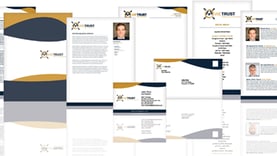The proper discovery process when dealing with a prospect holds significant importance in the overall sales cycle – and ultimately leads to success. As a financial professional, a foundational aspect of your business is to uncover financial problems that your prospects and clients may actually have (or their perceived problems) and it is your mission to help solve many of these financial issues.

However, like many of the things we do in the financial services industry, proper strategies and solutions are as much an art as a science. Most of the artistry comes from being in the business for a long time and understanding the ideal way to ask your prospects questions that will lead to the best possible solutions. The following questions can help you improve first meetings with prospects.
Ask for Permission
One key starting point (and one that we see many financial professionals miss) is to simply ask for permission to move forward with the discovery process. “Mr. Prospect, in order to effectively seek solutions to your concerns, I’d like your permission to ask you a few simple questions, is that OK?” How simple and unobtrusive is this? This question alone sets the stage for the discovery process, and places your prospect on notice that you're initiating the fact-finding stage of your meeting. Instead of simply leading into questions without formalizing the process, your prospects will have the working-knowledge and the level of input they need to have during this phase of the sales cycle.
Give Prospects Control
Financial professionals should primarily engage in broad-based, open-ended, questions that will set prospects at ease. Prospects will feel more in control because they're able to decide how much information they're comfortable with providing to you. Build on previous responses and drill-down on any areas that need further clarification. We suggest modeling the verbal tone and body language of the prospect, as this establishes a level of camaraderie. You are in this together to help determine the proper plan for their future.
Use Logic Questions
We like using logic questions: “If this event takes place, how do you foresee this playing out?” Allow prospects to forecast their perceived solutions. At this stage of the process, keep questions simple. Convoluted or two-part questions should be avoided. Ask your prospects straightforward questions that cover one topic at a time. It is best to ask for one answer at a time, so that one question leads to the next.
Provide the Reasons for Your Questions
Prospects like to know where your questions are headed. If they are uncertain or suspect you’re leading them, they may feel you are trying to manipulate them and control the meeting. Explain the relevance of sensitive questions in the overall aspect of problem solving. Successful financial professionals often use the analogy of a doctor not being able to provide the proper medical recommendations without knowing a patient's history. “How can I recommend something that will help you without knowing the sensitive nature of what ails you?” At times you may want to offer something of a personal nature from your life as support for the question being asked. “Can I tell you something of a personal nature?” This question can be used to open up this area of the discovery process.
Don't Rush Your Prospect's Answers
Transparency is essential to the initial discovery process, and always remember that you are the conduit of the solutions and products you offer. Take the time to allow your prospect to respond to the questions posed, even it means sitting quietly and waiting. Don’t be in a hurry to get to your next appointment. Remember, the investment you make in time now will pay off later when your prospect becomes a client, creates a sale, and potentially a future referral.
As you know, some prospecting programs work better than others. Request the on-demand webinar to learn about a break-away prospecting opportunity that gives you more qualified people to see. We've thoroughly vetted this program and we know from first-hand experience that it generates results.






